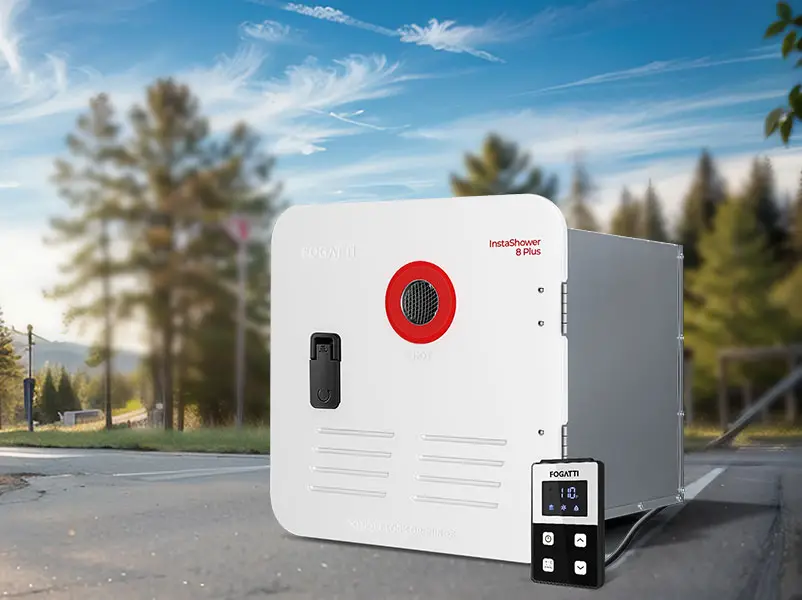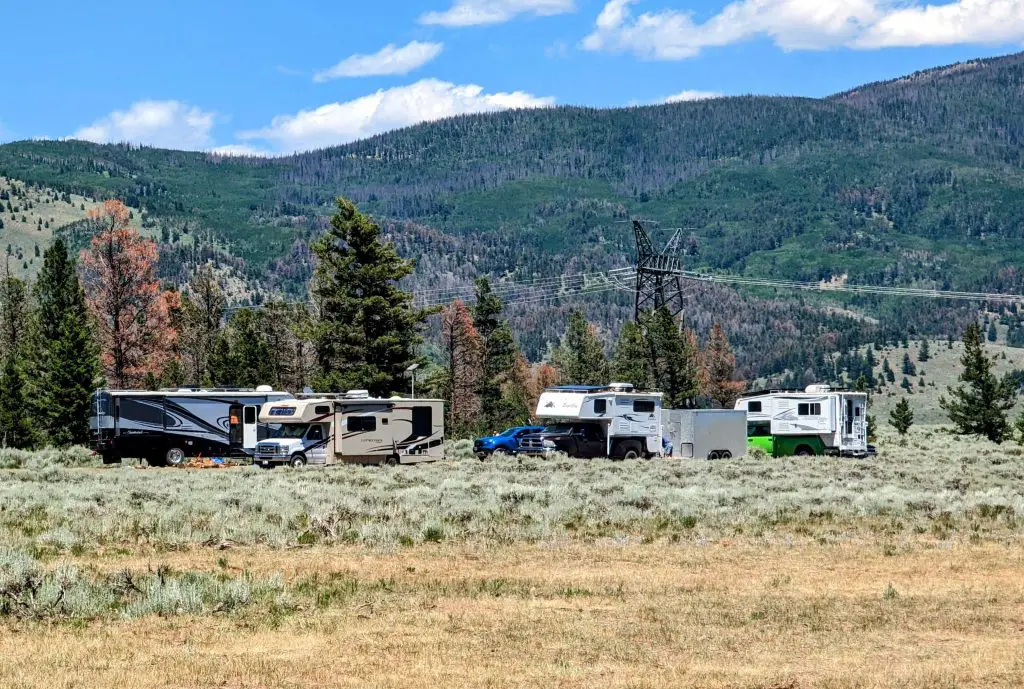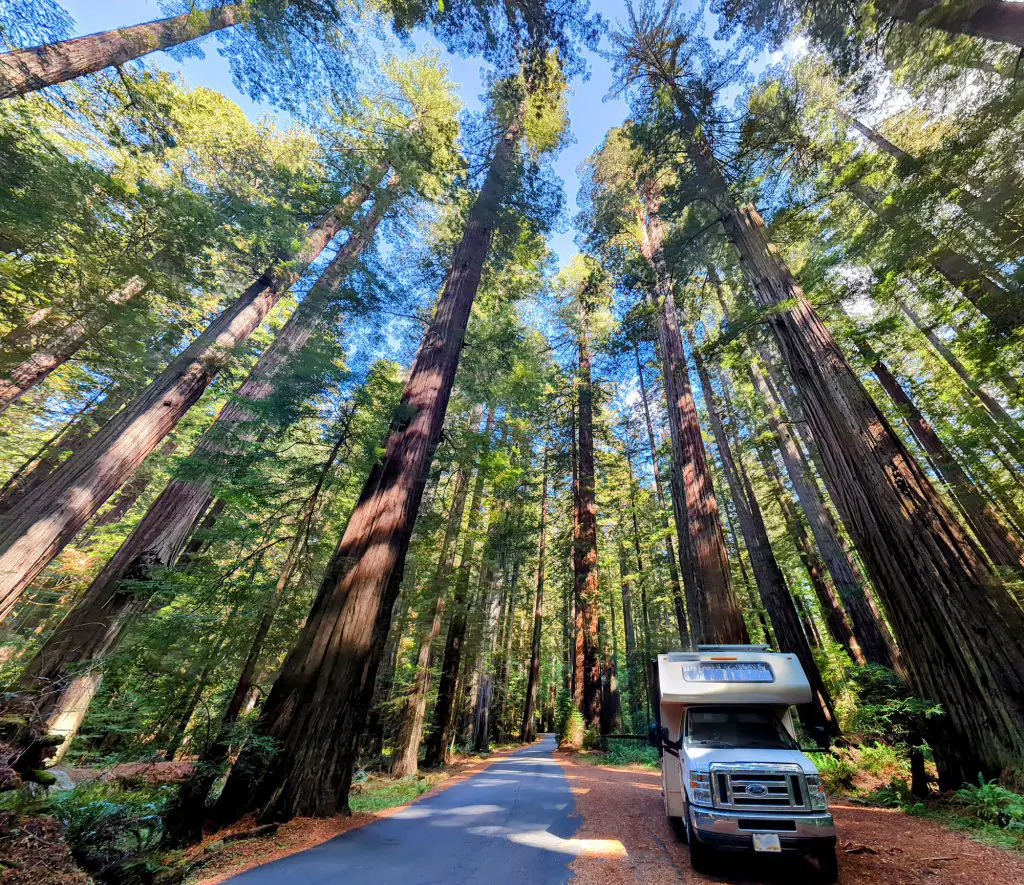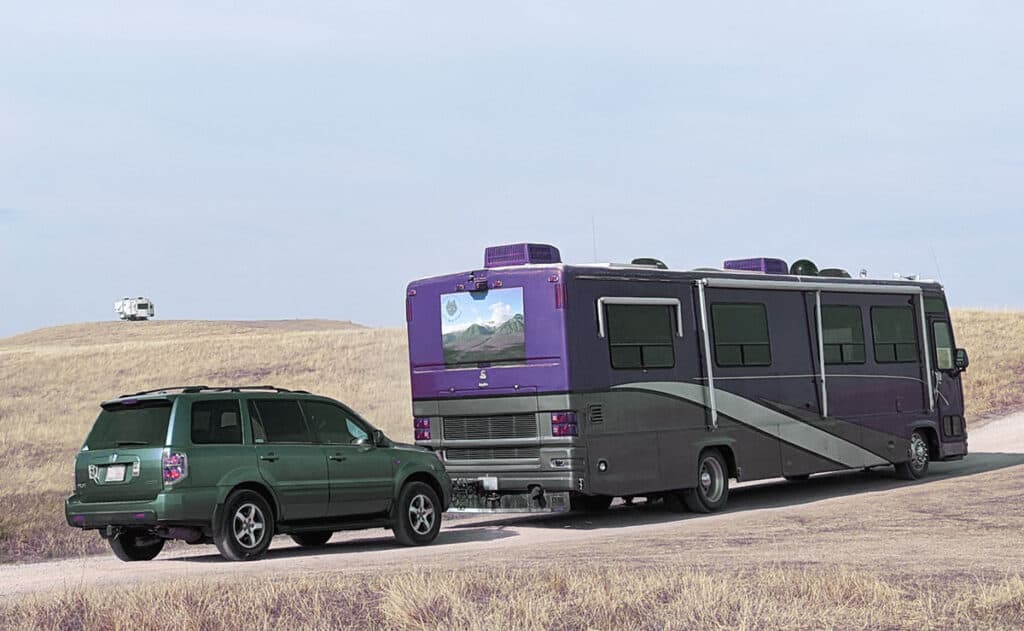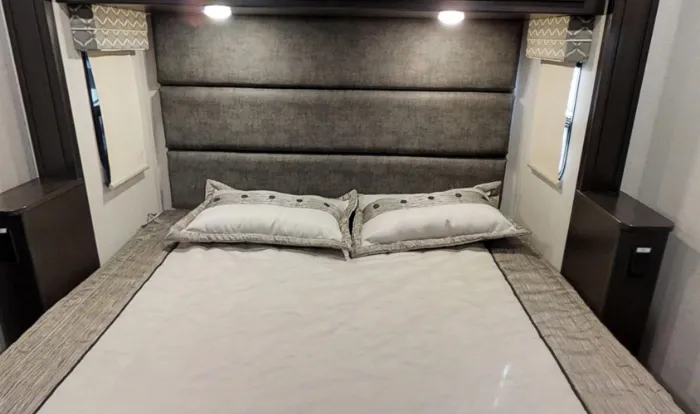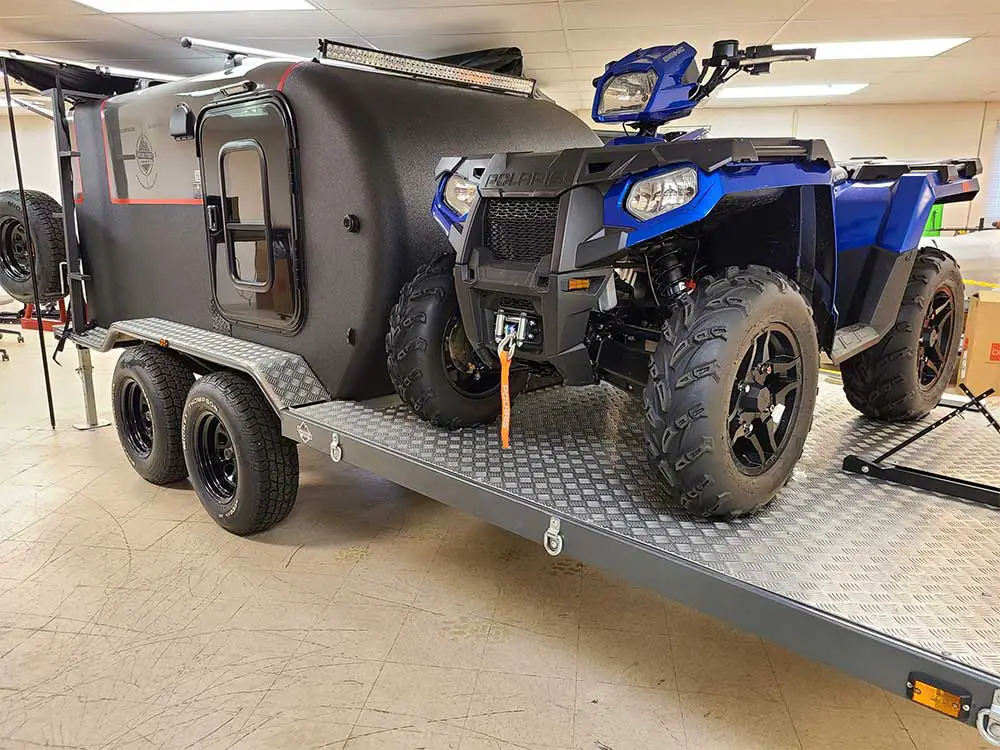Last Updated on February 14, 2024
Key Takeaways:
- RV Air Conditioner Energy Consumption: Air conditioners in RVs are energy-intensive appliances, typically using around 1500 watts of power per hour. This high energy consumption poses challenges for running them solely on solar power.
- Solar Power Output: RV solar panels typically range from 50 watts to 400 watts or more, with higher-wattage panels generating more power. Solar panels primarily charge the RV’s house batteries and can run low-power appliances and devices.
- Off-Grid Capability: RV solar panels enable off-grid camping by providing a continuous power supply for essential needs, offering freedom and independence in remote locations.
- Limitations of RV Solar Systems: While solar panels are effective for charging batteries and running low-power devices, they have limitations when it comes to high-energy-consuming appliances like air conditioners, electric heaters, large kitchen appliances, and high-power tools.
- Workarounds for Running AC with Solar Power:
- Generator Backup: Using a generator can supplement solar power for running appliances like air conditioners, but generators come with noise and emissions drawbacks.
- Energy-Efficient AC: Upgrading to an energy-efficient air conditioner can reduce electricity consumption, though it may require an initial investment.
- Solar System Upgrade: Installing a more robust solar power system, potentially with 1500-watt solar panels or more, along with a powerful battery and inverter system, can allow for running the air conditioner on sunny days without reliance on a generator or campground electricity.
As a seasoned RV owner, I understand the importance of having a comfortable and functional living space on the road. One of the biggest pain points for RVers is dealing with expensive campground electricity or limited dry camping battery life. That’s where solar power comes in, but can it run your air conditioner? Unfortunately, the short answer is in most cases no, but hear me out. In this post, I’ll explain why air conditioners are so energy-intensive and how much solar power you would actually need to keep your RV comfortable.
Let’s start with the basics. Air conditioners require a lot more power to operate than other appliances in your RV like lights or a TV. The average RV air conditioner uses about 1500 watts of power per hour. That’s a lot of electricity and can quickly drain even the best solar setup. In other words, your solar panels may be able to power individual devices or systems in your RV, but don’t expect to be able to run your AC unit without another source of power.
What Most RV Solar Systems Can Do?
Power Output
The power output of solar panels is measured in watts (W). RV solar panels typically range from 50 watts to 400 watts or more. The higher the wattage, the more power the panels can generate. A 100-watt solar panel is a common size for RVs and can provide a decent amount of energy to charge batteries and run low-power appliances.
Charging Batteries
RV solar panels are primarily used to charge the house batteries in your RV. They convert sunlight into electricity, which is stored in the batteries for later use. Solar panels can replenish your batteries during the day, reducing or eliminating the need for external power sources or running the generator.
Running Appliances
The power generated by RV solar panels can be used to run various small appliances and devices inside your RV. However, it’s important to note that the capacity of solar panels may not be sufficient to power high-energy-consuming appliances like air conditioners or microwaves directly. Instead, solar power is typically used to operate low-power devices such as lights, fans, water pumps, laptops, smartphones, and small kitchen appliances.
Off-Grid Capability
RV solar panels enable you to go off-grid and camp in remote locations without access to electrical hookups or generators. With a well-designed solar system and adequate battery storage, you can maintain a consistent power supply for your essential needs, providing a greater sense of freedom and independence on your RV adventures.
Energy Storage
Solar panels generate electricity during the day, and any excess power can be stored in your RV’s battery bank. This stored energy can then be utilized during the evenings or when sunlight is limited, ensuring a continuous power supply. Adding a solar charge controller to your system helps regulate the charging process, maximizing the efficiency and longevity of your batteries.
Limitations Of RV Solar Systems
RV solar panels have limitations when it comes to running high-energy-consuming appliances or devices. Not just that the size of the roof can be limiting, and the weight the system will add to your RV, but storing the power you generate can be also expensive and will require space. Here are some examples of items that may be challenging to run solely on solar power:
Air Conditioners
RV air conditioners typically require a significant amount of power to operate, often exceeding the capacity of most RV solar systems. Air conditioners draw a substantial amount of energy, and running them solely on solar power would require an extensive solar array and battery bank, which may not be practical or feasible for most RV setups.
Electric Heaters
Electric heaters, especially those with high wattage, consume a considerable amount of power. Running electric heaters solely on solar power would typically exceed the capacity of RV solar panels and drain the batteries quickly. It’s more practical to rely on alternative heating sources like propane or diesel heaters for heating needs.
Large Kitchen Appliances
Appliances such as electric ovens, large refrigerators, and washing machines consume significant amounts of power and are generally not suitable for running solely on solar power in an RV. These appliances typically require a dedicated electrical connection or generator for operation.
High-Power Tools or Equipment
If you have specific power tools or equipment with high wattage requirements, such as welding machines or heavy-duty power tools, running them solely on solar power may not be feasible. Such tools often demand more power than an RV solar system can provide, and alternative power sources may be necessary.
Remember, the primary focus of RV solar panels is to provide power for essential needs and low-power devices, ensuring a comfortable and sustainable camping experience. To overcome the limitations of solar power, many RV owners use a combination of solar energy, battery storage, and alternative power sources like generators or shore power when higher energy demands arise.
No products found.
How To Run Your AC With Solar Power
Supply with Generator
But don’t totally lose hope just yet. There are a few workarounds that allow you to use your air conditioner without completely relying on electricity. One option is to use a generator when you’re not plugged into shore power or don’t have enough solar power. Generators are especially useful for running appliances that require a lot of power like your air conditioner. However, they come with downsides too, like the noise and fumes that can be bothersome in a natural setting.
Energy Efficient AC
Another option is to upgrade your air conditioner to a more energy-efficient model. Air conditioners with Energy Star ratings are designed to use less power and run more efficiently, translating to less electricity use. Of course, upgrading your AC will come at an extra cost, but if it reduces your overall energy consumption, it might be worth the investment.
Upgrade Your Solar System
If using a generator isn’t an option for you and you can’t upgrade your AC unit, the last option is to install a more robust solar power system on your RV. Given if you have enough space on your roof. To run your air conditioner for more than an hour or so, you’ll need a system that can handle a high level of power output. This also depends on the size and wattage your AC requires. In general, you would need a setup of 1500-watt solar panels or more, along with a powerful battery and inverter system. This system is not cheap, but it could potentially allow you to power your AC on sunny days without interference from the generator or campground electricity.
Conclusion
In conclusion, while solar power is a great resource for reducing your reliance on traditional electrical sources, it is not quite ready to power your entire RV. Specifically, air conditioners require too much power and can quickly deplete even the most robust solar setup. However, if you’re willing to use a generator, upgrade your AC unit, or invest in a sizable solar power system, you can still enjoy cool air on hot summer days. It’s all about balancing your energy needs and preferences as an RVer. Ultimately, the decision is yours! Happy trails.
Last update on 2024-04-29 / Affiliate links / Images from Amazon Product Advertising API


